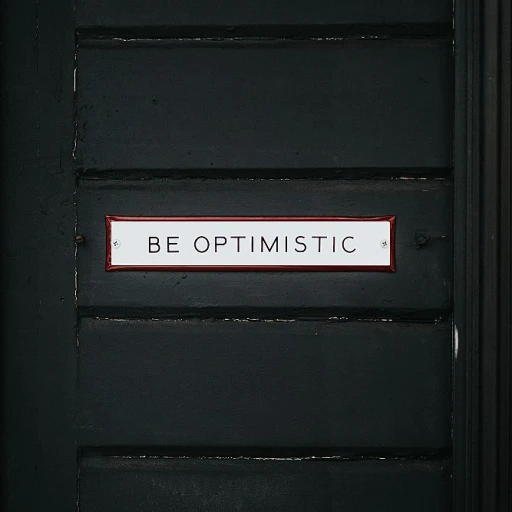Introduction to the New York Fair Chance Act
The Significance of the Fair Chance Act
In the bustling ecosystem of New York City, the Fair Chance Act (FCA) serves as a pivotal piece of legislation designed to promote fairer employment practices. Regularly referred to in conversations surrounding background checks, this law fundamentally reshapes how employers can utilize criminal history during the hiring process.
Originating as a ban-the-box legislation, the FCA prevents employers from inquiring about an applicant’s criminal history before making a conditional job offer. This initiative aims to reduce discrimination against candidates who have faced criminal offenses in the past, promoting a more inclusive workforce. By delaying the background check until after a conditional offer, the law ensures candidates are primarily assessed on their skills and qualifications.
This progressive approach addresses the impact of adverse action based on a candidate’s background and aligns with broader human rights objectives. The FCA not only facilitates a chance process for applicants but also guides employers to reevaluate their hiring strategies, ensuring a more equitable consideration for all applicants, irrespective of their criminal records.
For a deeper understanding of how background checks align with federal laws, particularly within the Fair Credit Reporting Act (FCRA), one can explore insights provided in this comprehensive overview.
Impact on Employers and Hiring Practices
Adjusting Employment Practices Under the Fair Chance Act
Employers in New York City are adapting to significant changes in hiring practices as mandated by the Fair Chance Act (FCA). Under this law, businesses are prohibited from inquiring about an applicant's criminal history until after a conditional job offer is made. This "ban the box" approach means that criminal background checks are delayed, requiring employers to revise their recruitment strategies. The FCA emphasizes that employment decisions should be based solely on qualifications and experience prior to criminal background scrutiny. Employers must now focus on the applicant's competencies and skills during the initial hiring stages. The benefit of this process is twofold: it mitigates unconscious bias and broadens the pool of qualified candidates who historically might have been overlooked due to prior convictions. Given these new requirements, employers in New York City must ensure that their application processes and documentation comply with city law. Training hiring managers to follow FCA guidelines is essential for avoiding unintentional violations. Moreover, background check procedures are now revised to align with the distinct conditions imposed by the FCA, such as conducting the review after a conditional offer is presented. The amendments introduced by the FCA necessitate transparency throughout the evaluation process. Employers must provide applicants with detailed explanations and guidance regarding any adverse action based on their criminal history. Commissions on human rights impose stringent measures to protect applicants, thus fostering fair chance employment and encouraging employers towards equitable hiring. Businesses are urged to seek legal advice and maintain awareness of updated guidance to stay compliant with evolving regulations. An understanding of the nuances of this law is critical since deviations could result in penalties or investigations from the commission on human rights. Detailed guidance can be found in resources that comprehend these complex regulations, as outlined in understanding the nuances of reversal and recoupment in medical billing.Compliance Challenges for Businesses
Challenges in the Compliance Landscape
Adhering to the New York Fair Chance Act presents numerous compliance challenges for employers engaged in the hiring process. This law, aimed at ensuring fairness for job applicants with a criminal history, imposes strict guidelines on how background checks and conditional offers are managed. Employers must navigate these guidelines while making employment decisions, striving to avoid adverse actions based solely on a candidate's past.
Among the most significant challenges for businesses is integrating the "ban the box" initiative. This step is crucial in ensuring that employers do not inquire about criminal history until after making a conditional offer of employment. The goal is to allow job seekers a fair chance to present their skills and capabilities without the stigma of a criminal record overshadowing their potential during the initial assessment.
Moreover, employers must consider the intricate process involved if adverse action is to be taken after learning of a candidate's criminal background. The Fair Chance Act mandates a specific process, including providing applicants with a written copy of the criminal background check and an opportunity to respond before any potential employment is affected. An essential part of compliance involves understanding the FCA's amendments and adapting hiring practices to meet these standards.
Additionally, businesses in York City must remain updated with the commission on human rights' guidance on fair chance employment. This includes being mindful of pending criminal offenses and arrests, as these may not be legitimate grounds for declining an applicant based solely on their potential future implications.
For companies seeking further information on similar compliance details and nuanced employment practices, they can explore insights on navigating pre-employment drug testing in other states. Navigating these complexities is critical to aligning with legal requirements and ensuring equitable hiring practices.
Effects on Job Applicants
The Landscape for Job Applicants Under the Fair Chance Act
The New York Fair Chance Act (FCA) is playing a significant role in shaping the job application process, particularly for individuals with a criminal history. For job applicants, this law means that employers in New York City, including the city itself, cannot ask about criminal convictions or pending arrests until after a conditional job offer has been made. This aspect of the Fair Chance Act gives applicants the opportunity to present themselves based on qualifications rather than an undue focus on criminal background. The "ban the box" initiative, part of the broader Fair Chance Act, has removed an initial barrier, allowing individuals with a criminal record a fairer shot at employment opportunities without being prematurely disqualified. This mandate requires that employers delay criminal background checks until a later stage in the hiring process. However, the conditional offer stage can be a critical moment for applicants, as employers may still conduct a criminal background check after this point. If an adverse action is considered based on the applicant's criminal history, employers must provide a "Fair Chance Process" notice, outlining their reasoning. This gives the applicant a chance to respond before any final employment decision is made. Applicants must stay informed about their rights under the Fair Chance Act and understand that any adverse action taken before a prior conditional offer might violate the law's stipulations. Human rights advocates and organizations are instrumental in providing guidance for navigating these complexities. The Commission on Human Rights offers resources and support to ensure that both applicants and employers are aware of their rights and obligations under the FCA. Given these conditions, the Fair Chance Act not only impacts how employers conduct background checks but also establishes a mechanism through which applicants can seek fair consideration for employment. The law is continually evolving, with amendments placing additional emphasis on fair chance employment, making it vital for applicants to remain proactive and engaged throughout the hiring process.Case Studies and Real-World Examples
Real-Life Implications of the Fair Chance Act
The implementation of the New York Fair Chance Act (FCA) has brought significant changes to the hiring landscape, particularly in how criminal background checks are conducted. This shift has been felt across various sectors, with both employers and job applicants navigating new terrains.
Employer Adaptations and Challenges
Many employers in New York City have had to rethink their hiring strategies. The FCA's emphasis on a conditional offer means that employers must now extend a job offer before conducting a criminal background check. This has led to a more thoughtful hiring process, where the focus is initially on the applicant's qualifications rather than their criminal history.
However, this has not been without its challenges. Employers often face compliance hurdles, particularly in understanding the nuances of the law and ensuring that their practices align with the FCA's requirements. The New York City Commission on Human Rights provides guidance, yet the application of this guidance can vary, leading to potential legal and operational risks for businesses.
Impact on Job Applicants
For job applicants, especially those with a criminal record, the Fair Chance Act has offered a more level playing field. By delaying the criminal background check until after a conditional offer, applicants have the opportunity to demonstrate their skills and suitability for the role without the immediate barrier of their criminal history.
Nevertheless, the process is not entirely without its challenges for applicants. Once a conditional offer is made, the potential for adverse action based on criminal history still exists. Applicants must be prepared to discuss their criminal record openly and provide context or evidence of rehabilitation when necessary.
Case Studies Highlighting the FCA's Impact
Several case studies illustrate the varied impacts of the FCA. For instance, companies that have embraced the spirit of the law report a more diverse workforce and improved employee retention rates. On the other hand, businesses that have struggled with compliance have faced legal repercussions and public scrutiny.
In one notable example, a large retail chain in New York City revamped its hiring process to comply with the FCA. This involved training hiring managers on the importance of the fair chance process and ensuring that all conditional offers were made in good faith. The result was a more inclusive hiring environment and a reduction in turnover rates.
These examples underscore the importance of understanding and properly implementing the Fair Chance Act. As more employers adapt to these changes, the landscape of employment in New York City continues to evolve, highlighting the ongoing need for awareness and adaptation.








